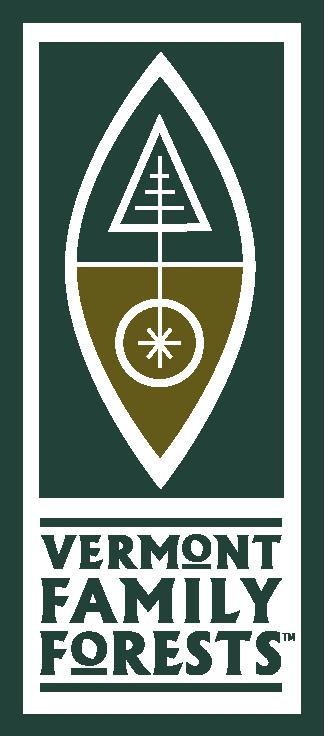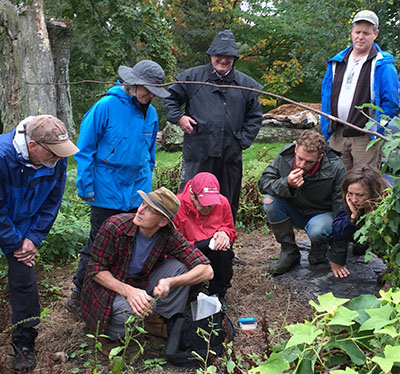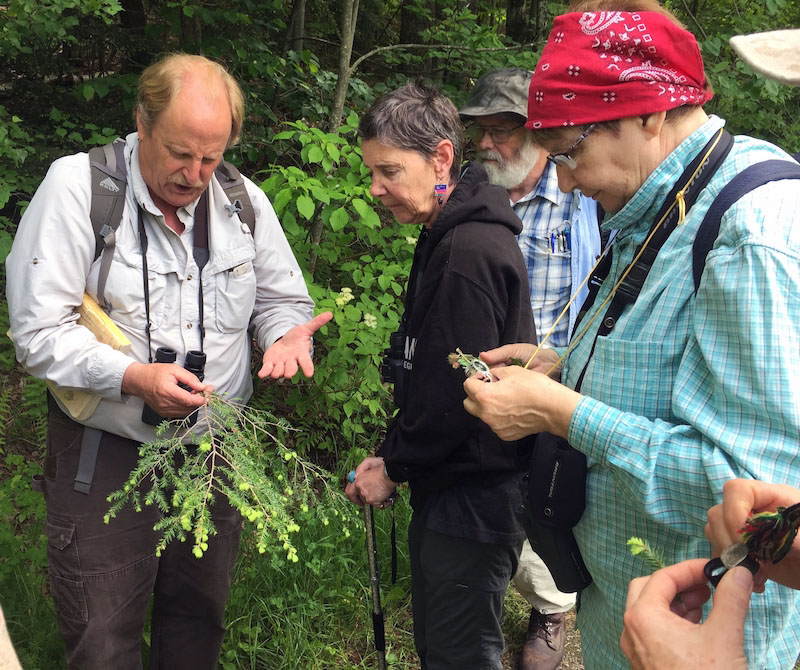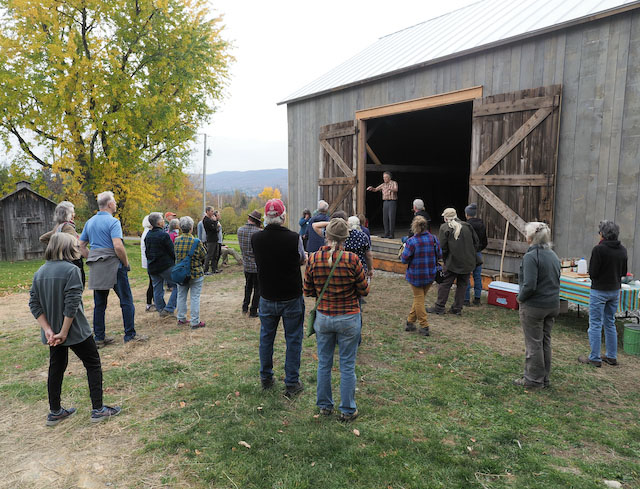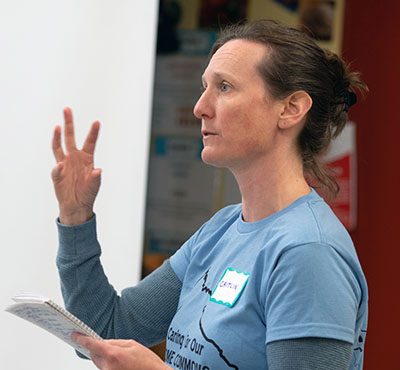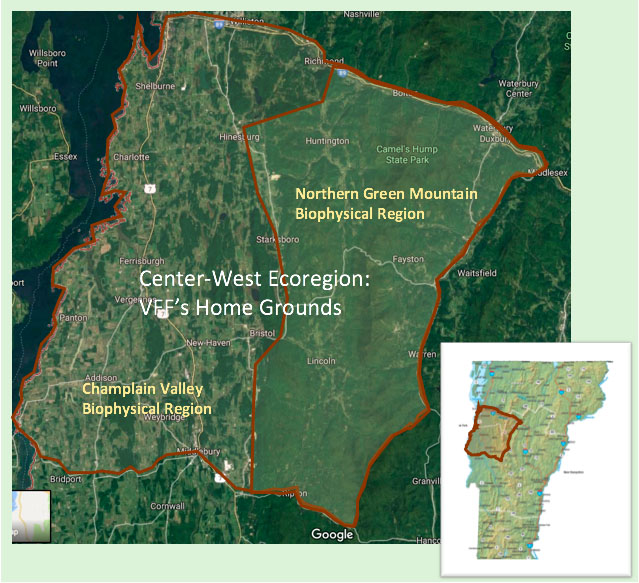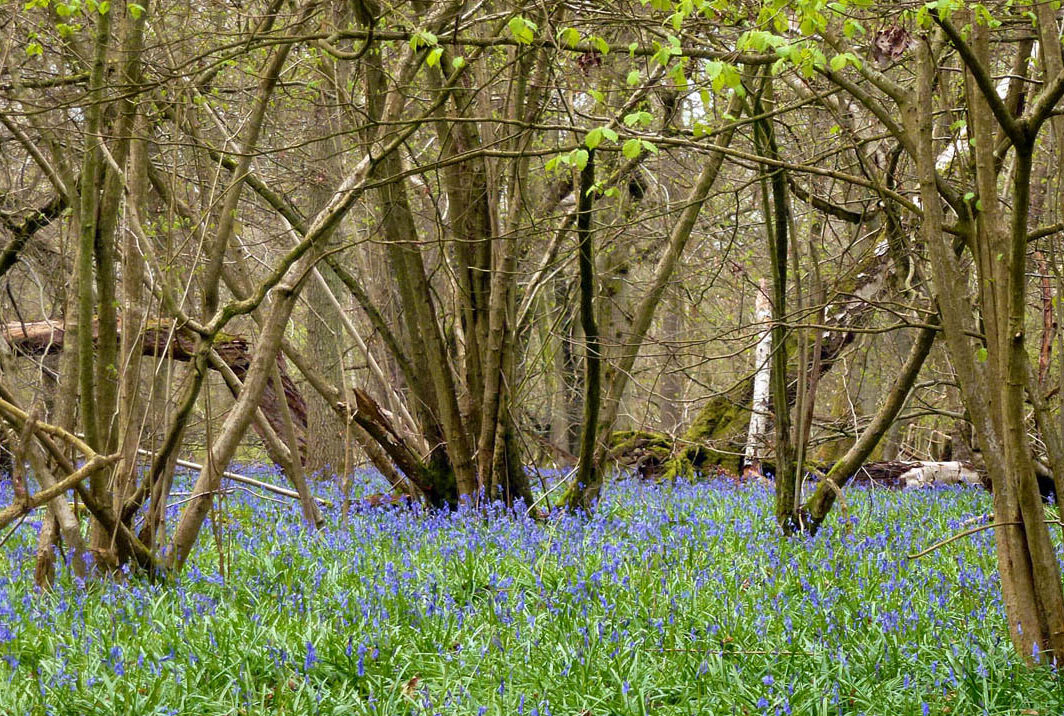
Organic Forestry Workshop
Sunday, October 8, from 9:00am-12:30pm, with flatbread pizza and cider to follow.
Location: Vermont Family Forests’ Anderson Wells Farm, 2542 Quaker St. Lincoln, VT 05443
Cost: $25, includes flatbread lunch and beverages
Taught by Mark Krawczyk and David Brynn
Course qualifies for 3 Society of American Foresters Continuing Forestry Education credits
Course overview: In this workshop, you’ll be introduced to coppicing and pollarding as organic silvicultural practices that address such challenges as white-tailed deer browse, invasive exotics, hay-scented fern proliferation, while producing better timber & more sap, fruit, nuts, basketwood & stovewood. AND while sequestering & storing lots more carbon in a rapidly changing climate.
The workshop will begin with an introductory discussion at Wells Farm of the practice, benefits, and extensive history of coppicing and pollarding. We’ll then carpool to VFF’s Abraham’s Knees forest in Lincoln where Mark and David will demonstrate coppice and pollard techniques. The workshop will then circle back to Wells Farm for flatbread cooked in our earth oven (a perfect place to use pollarded firewood!).
Mark Krawczyk teaches, designs, and consults on permaculture design, agroforestry, natural building, traditional woodworking, and small-scale forestry for farmers, homeowners, and homesteaders. He and his wife, Ammy, manage Valley Clayplain Forest Farm in New Haven, Vermont. Mark is the author of Coppice Agroforestry: Tending Trees for Product, Profit & Woodland Ecology.(Coppicing and pollarding are closely related agroforestry techniques.)
David Brynn is the founder and executive director of Vermont Family Forests. David has lived and worked as a forester in Vermont’s Center-West Ecoregion for over forty years, where he has advocated for family forestry and sustainable forest ecosystem conservation while focusing on the protection of our ecological commons: clean water, diverse wildlife, carbon storage, and flood resilience. Loggers have called him Waterbar, and he’s proud to wear this nickname. His personal aspiration is to do no harm. He is the author of the Organic Family Forestry Conservation Checklist, which serves as the foundation of his forestry work.



